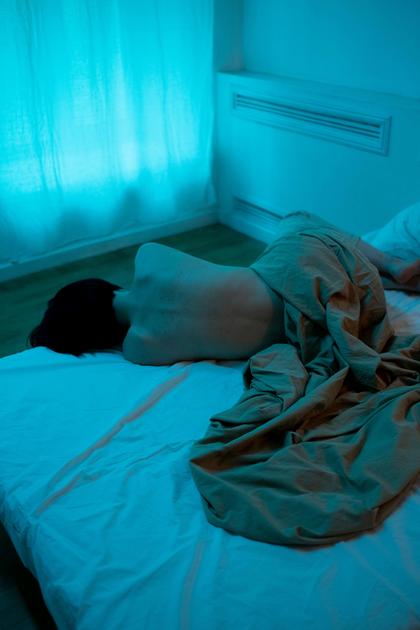Many women above 30 experience hair loss, often without understanding the hidden connection between hair loss and stress. The daily pressures of life can leave you feeling drained, impacting not just your mood but also your appearance. Have you noticed your hair thinning as stress levels rise? You’re not alone in this struggle. In this article, we’ll dive into the emotional and physical effects of stress on hair health, offering insights and gentle solutions.
In our busy lives, it can be easy to overlook the signs of stress. Paste your worries aside for a moment and consider the impact it could be having on your body. Many women are finding relief without heavy medications. Small changes can lead to big improvements, and it’s time to explore them together.
Join Thousands of Women Rediscovering Their Energy
This gentle method gave me back the vitality I thought was gone forever
Understanding Hair Loss and Its Causes
Hair loss is a common concern that affects many people across the globe. For women over 30, the experience can be particularly distressing. Various factors contribute to hair loss, including genetics, hormonal changes, medical conditions, and environmental influences. Understanding these causes is the first step toward addressing the problem.
Genetics plays a significant role in hair loss. Women with a family history of thinning hair or baldness may find themselves facing similar challenges. This hereditary condition is often referred to as androgenetic alopecia.
Hormonal changes are also a major culprit. Conditions like pregnancy, menopause, and polycystic ovary syndrome (PCOS) can disrupt hormonal balance and lead to hair thinning. The excess of certain hormones or the drop in estrogen levels can weaken hair strands, making them more prone to falling out.
Additionally, various medical conditions such as thyroid disorders, autoimmune diseases, or scalp infections can lead to significant hair loss. Stress, a silent but impactful factor, can also exacerbate these conditions.
The good news is that by identifying the underlying causes of hair loss, you can seek targeted treatments or lifestyle changes to promote hair health.
The Role of Stress in Hair Health
Stress is often an overlooked but significant factor in hair loss. When you experience stress, your body enters a fight-or-flight mode, which can lead to a variety of physical symptoms, including hair shedding. This process is known as telogen effluvium, where stress pushes hair follicles into a resting state, causing them to shed prematurely.
The mental and emotional toll of stress can create a cycle of anxiety and hair loss, making the situation worse. Understanding this connection is vital for anyone struggling with unexplained hair loss.
Recognizing the Signs of Stress-Related Hair Loss
Identifying stress-related hair loss is crucial to addressing the issue effectively. Here are some signs to look out for:
- Increased Hair Shedding: Noticeable hair strands on your pillow, in the shower, or on your brush can indicate significant shedding.
- Thinning Areas: Pay attention to specific areas where hair appears to be thinning more than others.
- Emotional Symptoms: Increased levels of irritability, anxiety, or fatigue often accompany hair loss due to stress.
If you recognize these signs, know that you’re not alone. Many women face this challenge, and there are steps you can take to regain not just control over your hair, but also over your emotional well-being.
Emotional Challenges of Hair Loss
The emotional impact of hair loss can be profound. For many women, hair is an essential part of their identity. Losing it can lead to feelings of inadequacy, lowered self-esteem, and social anxiety. The distress can be overwhelming.
Women often report feeling embarrassed or self-conscious about their hair thinning, which can lead to avoiding social situations or hiding under hats and scarves.
It’s important to acknowledge these feelings. Talking about your experiences with trusted friends or joining support groups can provide comfort and understanding. Remember, sharing your challenges can lighten the emotional load.
Lifestyle Changes to Reduce Stress
Making lifestyle changes can significantly impact your stress levels and, consequently, your hair health. Here are some effective strategies:
- Regular Exercise: Physical activity boosts endorphins, which can help alleviate stress and improve overall mood.
- Meditation and Mindfulness: Practicing mindfulness techniques can improve your mental outlook and help manage stress effectively.
- Quality Sleep: Prioritize sleep, as restoration is crucial for both your mind and hair health.
- Fun and Recreational Activities: Engaging in activities you enjoy can be a powerful stress reducer. Whether it’s painting, dancing, or gardening, find what brings you joy.
See here how many women are resolving their issues without heavy medications.
Nutrition’s Impact on Hair and Stress Management
A healthy diet is vital for managing stress and supporting hair health. Foods rich in vitamins and minerals can strengthen hair follicles and promote growth.
Consider incorporating the following into your diet:
- Omega-3 Fatty Acids: Found in fish, flaxseeds, and walnuts, these nutrients promote scalp health and reduce inflammation.
- Vitamin D: Essential for hair follicle cycling; sunlight and supplementation can help maintain optimal levels.
- Iron and Protein: Essential for hair growth; red meats, beans, and leafy greens can enhance your intake.
By paying attention to your nutrition, you can support your hair while managing stress more effectively.
Effective Stress-Relief Techniques
Finding the right stress-relief techniques for you is important. Here are some that you might find helpful:
- Aromatherapy: Essential oils like lavender and chamomile can promote relaxation and reduce stress.
- Yoga: Yoga combines physical movement with breath control and meditation, making it a holistic approach to managing stress.
- Journaling: Writing down your thoughts can help clear your mind and provide perspective on your feelings related to hair loss and stress.
Try a few different techniques to find those that resonate best with you. Remember, it’s about finding peace and balance in your life.
Building a Support System
Having a strong support system can be a game-changer when dealing with hair loss and stress. Surround yourself with friends, family, or support groups who understand what you’re facing.
Consider speaking with a therapist or counselor who specializes in body image and self-esteem issues. Sharing your experiences and feelings can be cathartic and immensely empowering.
Remember that you don’t have to navigate this journey alone. Your support system can uplift you, providing encouragement when you need it most.
Debunking Myths About Hair Loss
Many myths surround hair loss, especially for women. Here are a few to debunk:
- Myth 1: Hair loss is only a man’s issue. Fact: Women experience hair loss as well, and it’s a common issue.
- Myth 2: Frequent hair washing causes hair loss. Fact: Regular washing keeps the scalp clean and healthy; it does not cause hair loss.
- Myth 3: Cutting hair can make it grow back stronger. Fact: Hair growth is determined by genetics and health, not by cutting.
Understanding the truth about hair loss can empower you and help you make informed decisions about your hair care and overall health.
Taking the First Steps Toward Healing
Healing from hair loss and managing stress is a journey that begins with taking small steps. Whether you explore natural remedies, lifestyle changes, or talk to a professional, every step is significant.
Start by identifying your stressors and taking time to care for yourself. Track the changes in your hair and health, and celebrate small victories. Healing is possible, and you have the strength to overcome these challenges.
Your journey toward healing is uniquely yours, and it’s okay to seek help along the way. Remember, many women have successfully navigated similar paths and found solutions that work.
Join Thousands of Women Rediscovering Their Energy
This gentle method gave me back the vitality I thought was gone forever







